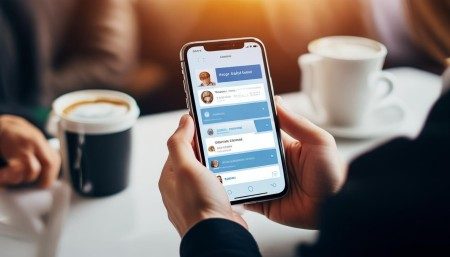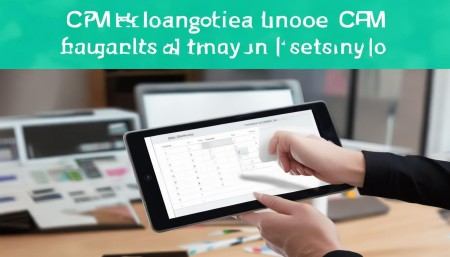
△Click on the top right corner to try Wukong CRM for free
So, you’ve probably heard the term CRM thrown around a lot lately—especially when people talk about customer service, sales, or marketing. I mean, it’s everywhere these days. But honestly, if someone asked me a few years ago what CRM actually meant, I’d have just nodded along and pretended I knew. Sound familiar? Yeah, I thought so. Let’s break it down together, in plain English, without all that confusing tech jargon.
Alright, first things first—CRM stands for Customer Relationship Management. Sounds kind of formal, right? Like something only big corporations with fancy offices would care about. But here’s the thing: CRM isn’t just for huge companies. It’s actually super useful for small businesses, freelancers, even solopreneurs trying to keep track of their clients.
Free use of CRM system: Free CRM
So what does CRM really mean? Well, think about your own relationships. When you meet someone new, you remember their name, maybe their favorite coffee order, or that they hate Mondays. You do this because it helps you connect better, right? A CRM system basically does the same thing—but for businesses and their customers.
It’s like a digital notebook that stores all the important details about your customers: their contact info, past purchases, support tickets, emails you’ve sent them, meetings you’ve had… basically anything that helps you understand who they are and how you’ve interacted with them over time.
Now, imagine running a business without that. You’re juggling 50 different clients, each with their own quirks and needs. One person wants updates every Friday. Another hates phone calls and only responds to email. Without a CRM, you’re relying on memory, sticky notes, or scattered spreadsheets. And let’s be real—none of us are that good at remembering everything perfectly.
That’s where CRM comes in. It keeps all that information organized in one place. So instead of digging through old emails or asking your coworker, “Wait, did we already send that proposal?”—you just log into your CRM and check. Boom. Done.

But it’s not just about storing data. A good CRM actually helps you use that data. For example, it can remind you when it’s been two weeks since you last followed up with a lead. Or it can automatically send a birthday message to a loyal customer. Some CRMs even analyze customer behavior to predict who might be ready to buy next.
And get this—it doesn’t just help sales teams. Marketing uses CRM to personalize campaigns. Support teams use it to see a customer’s history before answering a ticket. Even product teams can look at CRM data to spot common complaints or feature requests.
I know what you’re thinking: “Okay, but isn’t that just software?” Well, yes and no. CRM is software—you install it, log in, click buttons—but it’s also a strategy. Because having the tool means nothing if you don’t actually use it to build better relationships.
Think of it like owning a fancy camera. You can have the best gear in the world, but if you don’t know how to take good photos, it’s useless. Same with CRM. The real value comes from using it consistently to understand your customers, anticipate their needs, and treat them like real people—not just dollar signs.
Now, there are different types of CRM systems out there. Some are super simple, like basic contact managers. Others are full-on platforms with automation, analytics, and integration with email, social media, and e-commerce sites.
For example, if you run an online store, your CRM might sync with your website to track what products a customer browses. Then, later, it could trigger a personalized discount for items they looked at but didn’t buy. That’s not magic—that’s smart CRM use.
And here’s something people often overlook: CRM isn’t just about acquiring new customers. It’s even more important for keeping the ones you already have. Studies show it’s way cheaper to retain a customer than to find a new one. And a CRM helps you do that by making sure no one falls through the cracks.
Like, imagine a customer hasn’t bought from you in six months. A CRM can flag that account and suggest sending a re-engagement email. Maybe offer them a special deal. Suddenly, they’re back—and happy you remembered them.
Another cool thing? CRMs can help teams collaborate better. Say a sales rep is handing off a client to the onboarding team. Instead of writing a long email or hoping the next person reads the notes, they just update the CRM. Now everyone involved has access to the same info. No confusion. No missed steps.
And let’s talk about mobile access. Most modern CRMs have apps, so you can check customer details while you’re on the go. Waiting for a coffee? Pull up a client’s file and shoot them a quick message. At a conference? Log the conversation right after you meet someone. It keeps everything fresh and accurate.

Of course, not all CRMs are created equal. Some are easier to use than others. Some cost a fortune. Others are free but limited in features. The key is finding one that fits your business size, budget, and goals.
For a solo entrepreneur, a lightweight CRM like HubSpot’s free version might be perfect. For a growing company with a sales team, something more robust like Salesforce or Zoho might make more sense. The point is, you don’t need the fanciest tool—just one that works for you.
One thing I’ve learned the hard way: don’t wait too long to adopt a CRM. I used to think, “I’ll start using one when I get busier.” But by the time I was overwhelmed, I had months of messy data to clean up. Starting early saves so much headache.

Also, get your team on board. If only one person uses the CRM, it’s not going to help much. Everyone needs to input data regularly and trust that it’s useful. That takes training and buy-in. But once it becomes part of your routine, it feels natural.
And hey, mistakes happen. You might forget to log a call or enter the wrong email. That’s okay. The goal isn’t perfection—it’s progress. Over time, your CRM becomes more accurate and valuable.
Another myth: CRM is only for selling stuff. Nope. Nonprofits use it to manage donors. Schools use it for student outreach. Even doctors’ offices use CRM-like systems to follow up with patients.
The core idea is always the same: build stronger relationships by knowing your people better.
Let’s be honest—technology can feel cold sometimes. But a good CRM actually makes business feel more human. Because when you know your customers’ names, their stories, their preferences—you can treat them like individuals. And people notice that. They appreciate it.
In fact, that personal touch is what sets great businesses apart. Anyone can sell a product. But creating loyalty? That comes from connection. And CRM gives you the tools to foster that connection at scale.
Oh, and privacy? Super important. A CRM holds a lot of personal data, so you’ve got to protect it. Make sure your system complies with laws like GDPR or CCPA. Use strong passwords, limit access, and train your team on data security. Trust is everything.
At the end of the day, CRM isn’t about robots or algorithms. It’s about people. It’s about remembering that Mrs. Johnson prefers email over calls. That Mr. Lee bought the blue model last time and might want to hear about the new red one. That Sarah from accounting always pays on time and deserves a thank-you note.
Those little details matter. And a CRM helps you remember them—not because you’re trying to manipulate customers, but because you genuinely want to serve them better.
So, to sum it all up: CRM stands for Customer Relationship Management. It’s both a strategy and a tool. It helps businesses organize customer information, improve communication, and build stronger, more personal relationships. Whether you’re a startup or a multinational company, using a CRM can save time, reduce errors, and ultimately help you grow—by putting your customers first.
And honestly? Once you start using one, you’ll wonder how you ever managed without it.
FAQs (Frequently Asked Questions)
Q: Is CRM only for big companies?
A: Not at all! Small businesses and even solo entrepreneurs can benefit from CRM. There are affordable and even free options designed for smaller teams.
Q: Do I need technical skills to use a CRM?
A: Most modern CRMs are user-friendly and don’t require coding or IT knowledge. Many offer tutorials and customer support to help you get started.
Q: Can CRM help with email marketing?
Yes, absolutely. Many CRMs include email automation tools that let you send personalized campaigns based on customer behavior or segments.
Q: How secure is customer data in a CRM?
Reputable CRM providers use encryption, secure servers, and compliance measures to protect data. But it’s also your responsibility to use strong passwords and control access.

Q: Will a CRM replace my sales team?
No way. A CRM supports your team by organizing information and automating tasks, but human interaction is still essential for building real relationships.
Q: Can I access my CRM on my phone?
Most CRM platforms offer mobile apps, so you can view and update customer info from your smartphone or tablet.
Q: What’s the difference between CRM and a contact list?
A contact list just stores names and emails. A CRM tracks interactions, purchase history, notes, tasks, and more—it’s a full relationship management tool.
Q: How much does a CRM cost?
Prices vary widely. Some are free with basic features; others charge per user per month. Costs depend on features, number of users, and business size.

Q: Can CRM integrate with other tools I use?
Yes, most CRMs integrate with email, calendars, social media, e-commerce platforms, and more. Check compatibility before choosing one.
Q: Is CRM only for sales?
Nope. While sales teams use it heavily, marketing, customer support, and even HR can benefit from CRM data and workflows.
Related links:
Free trial of CRM
Understand CRM software

△Click on the top right corner to try Wukong CRM for free